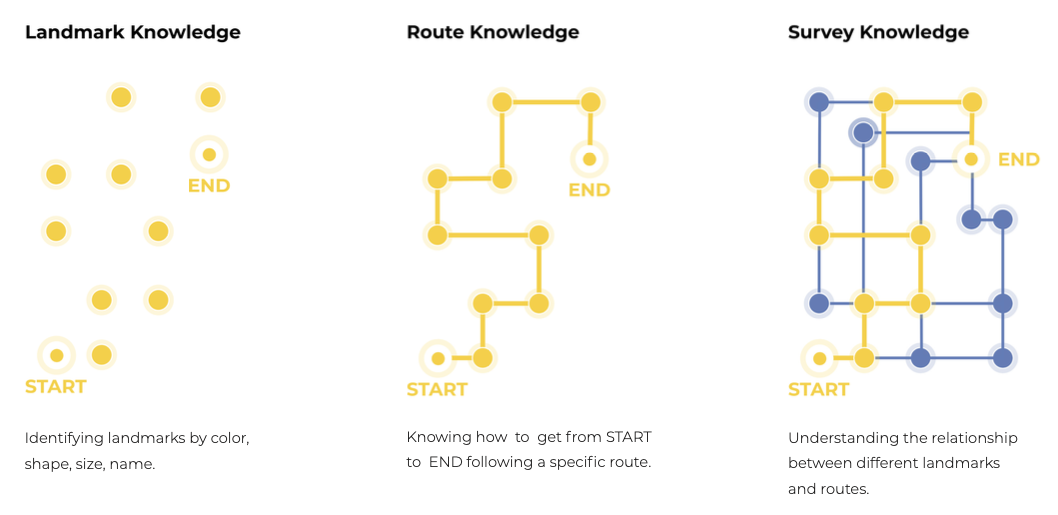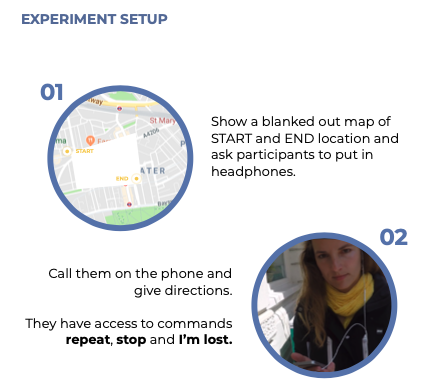Navi
#navigation, #fieldResearch, #experiments, £userResearch, #mobility, #cognition, #wayfinding, #augmentedAudio, #audioInterfacesHumanized navigation instructions.
![]()
NAVI is a humanized navigation syste that guides you to your destination through local landmarks and visual cues delivered through audio instructions and wayfinding microchallenges. 


It helps you build a mental map of your environment. As you develop
a cognitive map of your surroundings and learn to navigate them, NAVI learns with you.

It uses the technique of progressive reduction to deliver fewer instructions in familiar environments. It understands what landmarks are important and recognizable to YOU, and adapts its waypoints accordingly. With NAVI, you can hear your way, your way!

Research Question
“How might we create navigation aids that encourage spatial
learning, and decrease focused aid reliance?"
Context
By extending our mental, rather than our physical, abilities, intellectual technology is causing dramatic shifts in our brains – how we think, read, memorize and learn. If in the past, we wrote the instructions for machines to follow, the machines are now writing algorithms for us.
GPS Navigation
By following GPS turn-by-turn instructions, we can ensure that we’re getting to our destination in the shortest, fastest or cheapest way. But what the algorithm doesn’t optimize for is our ability to learn and navigate on our own.

Insights & Opportunities
Insight I
Turn-by-turn navigation instructions
don’t help people gain survey knowledge, because that’s not how we naturally engage with or describe our environments.
Opportunity I
Humanize navigation instructions and create a better wayfinding language for navigation aids.

Constantly shifting focus between the environment and the navigation aid decreases our ability to spontaneously learn spatial configuration during wayfinding.
Opportunity II
Communicate direction through continuous feedback that does not depend on sight for interpretation

Creating more memorable wayfinding experiences can improve our wayfinding abilities, because episodic memory recall requires no effort.
Opportunity III
Gamify navigation to challenge people and provide opportunities for episodic memory formation.

Experiment I
Humanized navigation instructions.

 Results
Results

Experiment II
Turn-by-turn Instructions

Results
While participants thought turn-by-turn was easier in the moment, they struggled significantly with post-experiment recall.

“
I think I vaguely remember. I couldn’t draw a
map. It wasn’t as memorable as the first one
for sure and all the street names escape my
memory. I don’t even remember how many
blocks I had to pass before making a right or a
left.”
Language Vocabulary

System Map
